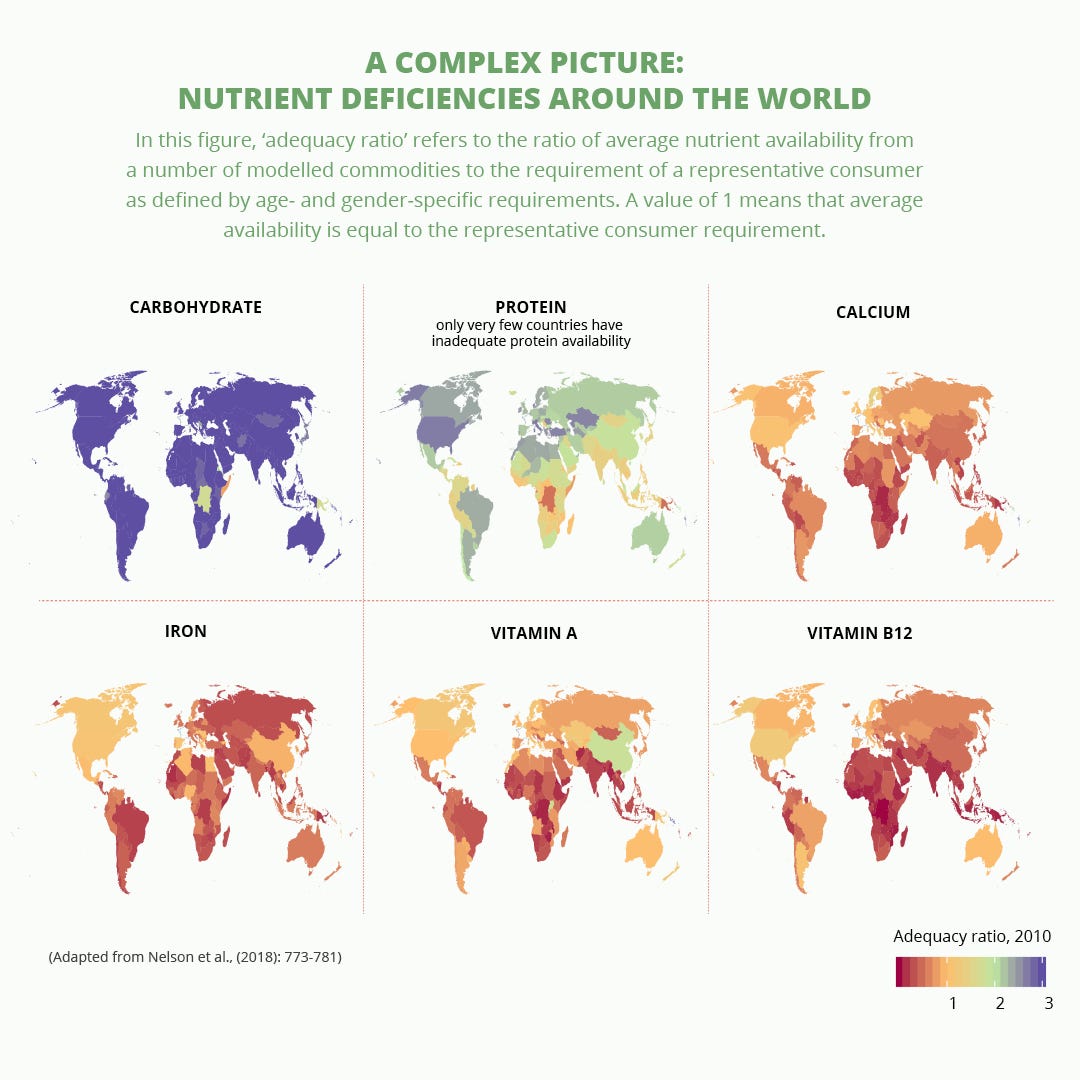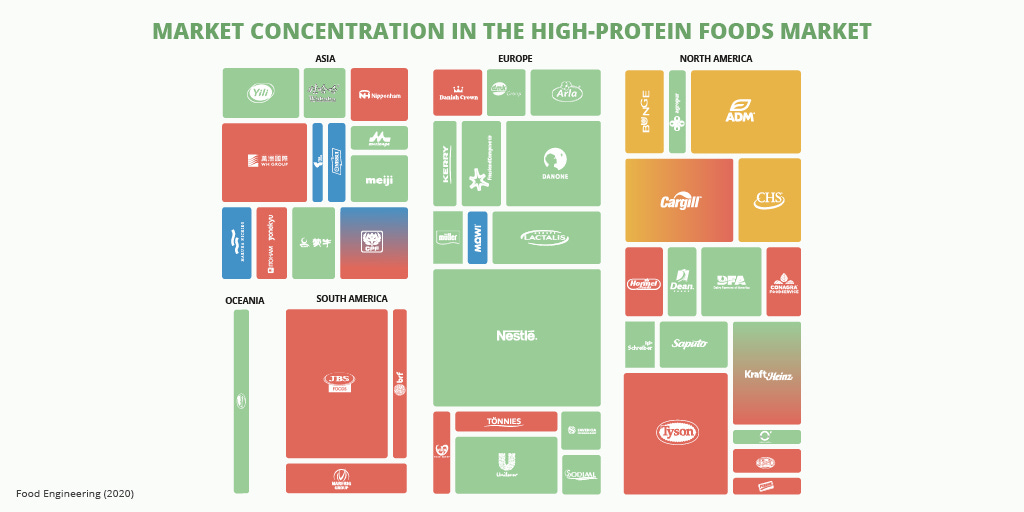Something New & Something Nuanced
A newsletter about food systems, climate change and everything connected to them
Something New
Drum roll, please…I’m very chuffed - not to mention gobsmacked - to be selected as one of 11 fellows in Substack’s Food Intensive, ‘an immersive three-month fellowship designed to accelerate writers covering food and beverages in culture, politics, and history’.
Here is the full announcement.
I’m really looking forward to learning from other fellows, all of whom sound bloody amazing.
I know it’s a cliched thing to say, but yeah, I’d say being in the same group as New York Times best-selling author Anne Byrn, veteran wine guru Aaron Ayscough, star snack writer Doug Mack, former Washington Post drinks columnist Jason Wilson, and food justice advocate Natalie Love Cruz, is a pretty big honour. I can’t wait to learn from them.
I’m writing this sitting in a cafe in the beautiful and historic city of Perugia, the annual International Journalism Festival site. This is the first time since 2019 we’re having a proper, in-person event, so it’s full of journalism chatter (probably a nightmare scenario for some of you - I empathise). I’m just soaking it all in and feeling incredibly grateful to be able to do what I absolutely love doing and to be supported in doing it.
One of the things I’ll be learning as a fellow is to see how this little newsletter, which I started 14 months ago to keep myself informed about food, climate and their intersection as I entered the great unknown world of ‘freelancing’, can actually become a livelihood as well.
I’m a firm believer that news should be freely available to everyone, that knowledge and information shouldn’t be behind a paywall and accessible only to those who can fork out something.
Perhaps it has to do with growing up in a poor country and being aware it was only by sheer accident of birth that I’m here and not struggling to make ends meet. But journalists must eat, too, so yeah, I’m going to be exploring different options and the kind folks at Substack will be helping me do that.
I’m also hoping they can help me with one of the main goals I have of writing and reporting about food and climate issues - this is something that affects every single one of us and we all need to be reading, writing and reporting them.
I’d love to hear from you on what you’d like to see more (or less) of. If you have time to drop me a quick line, please do!
Something Nuanced
This is about the report, The Politics of Protein, by the Brussels-based International Panel of Experts on Sustainable Food Systems (IPES-Food), which came out on Apr 7 (Thursday).
It’s a really interesting take on alternative proteins - from cell-based and plant-based meat and seafood to aquaculture - and the claims about their sustainability. I wrote a 900-word, fairly detailed article for AgFunder News, whose editors kindly took the length in stride and didn’t make me cut it in half.
But the whole report, nearly 90 pages long, is worth reading, mainly because it is trying to inject something that has been sorely lacking in the discourse around meat and livestock - nuance. It is critical of the whole brouhaha around alternative proteins and demands more transparency and accountability from these start-ups, which have been attracting investment in the millions.
“The implications for health and sustainability ultimately depend on what ingredients are used, how they are produced and processed, as well as what they are replacing and where they are being marketed. Many of the latest substitutes rely on energy-intensive hyper-processing to produce key additives, as well as sourcing ingredients from industrial monoculture systems,” it said.
“‘Alternative proteins’ also represent a new phase of food system industrialisation that could undermine resilience, jeopardise the livelihoods of millions of food producers, and reinforce a ‘centre of the plate’ approach to diets – rather than supporting transformational changes in the way we eat. Bold and categorical claims about alternative proteins being a ‘win-win-win’ are therefore misleading.”
In fact, the report takes particular issue with how some of the big conglomerates that currently control our meat and dairy sectors are now jumping into the alt-protein sector.
“Nearly every large meat and dairy processor/manufacturer has also acquired or developed plant-based meat and dairy substitutes... More than a dozen of these firms have also invested in start-ups that are attempting to commercialise lab-grown meat and fish.”
Why is this a problem?
“The livestock sector… is increasingly characterised by vast multinational firms with huge market share and political clout. By 2014, the world’s top 10 meat processing companies controlled 75% of beef slaughter, 70% of pork slaughter, and 53% of chicken slaughter.”
Some might think their criticism is too harsh or too ideological, but I think it pushes people to become more discerning, which can only be a good thing. Personally, though, I believe alternative proteins can play a big role in meat-heavy western diets.
Some Things for the Weekend
Some folks have been working on the ‘true cost of food’ from big organisations like the Rockefeller Foundation and the Global Alliance for the Future of Food to small nonprofits, like Amsterdam-based True Price, which was featured in this New Yorker piece by Nick Romeo.
Essentially, the idea is that the food we’re currently eating does not reflect the true costs associated with producing it. So, the price of a bag of tomatoes or a bunch of asparagus likely includes the cost of seeds, labour and diesel for tractors.
Still, it likely doesn’t include other environmental and social costs, like if the farmers use pesticides to grow the tomatoes and the runoff poisoned local waterways or underpaid their workers hired to harvest asparagus during its short growing season. I find the whole subject fascinating, and I hope you do too after reading the article.The latest doorstopper report from the IPCC came out earlier this week. Carbon Brief has been cracking to distill these IPCC reports into readable, understandable bits, and they’ve done the same with the latest one. It’s got 17 sections, but you can pick and choose which ones you want to read. Enjoy!
The UN food and agri agency FAO said its Food Price Index, which tracks the most globally traded food commodities every month, reached the highest level since its inception in 1990.
“The latest increase reflects new all-time highs for vegetable oils, cereals and meat sub-indices, while those of sugar and dairy products also rose significantly,” the agency said. This was “largely driven by conflict-related export disruptions from Ukraine and, to a lesser extent, the Russian Federation”.
Even before the release of the latest Food Price Index, the situation worried folks in the sector so much the Civil Society Mechanism and Indigenous Peoples’ Mechanism for relations with the CFS sent a letter to the CFS, suggesting it to hold an Extraordinary Plenary as soon as possible. CFS stands for the Committee on World Food Security, a top-level UN forum.
Also speaking of Ukraine, the FAO has also launched a dedicated website on what’s happening in Ukraine. The briefing notes are worth reading.
As always, have a great weekend! Please feel free to share this post and send tips and thoughts on Twitter @thinink, my LinkedIn page or via e-mail at thin@thin-ink.net.









An enjoyable read. I am particularly interested in digging deeper into your report on alt proteins. Consumers are increasingly being enticed with fad ingredients and alternatives that are not necessarily healthier or more sustainable. And big brands getting in on this is even more worrying since profit always comes first!